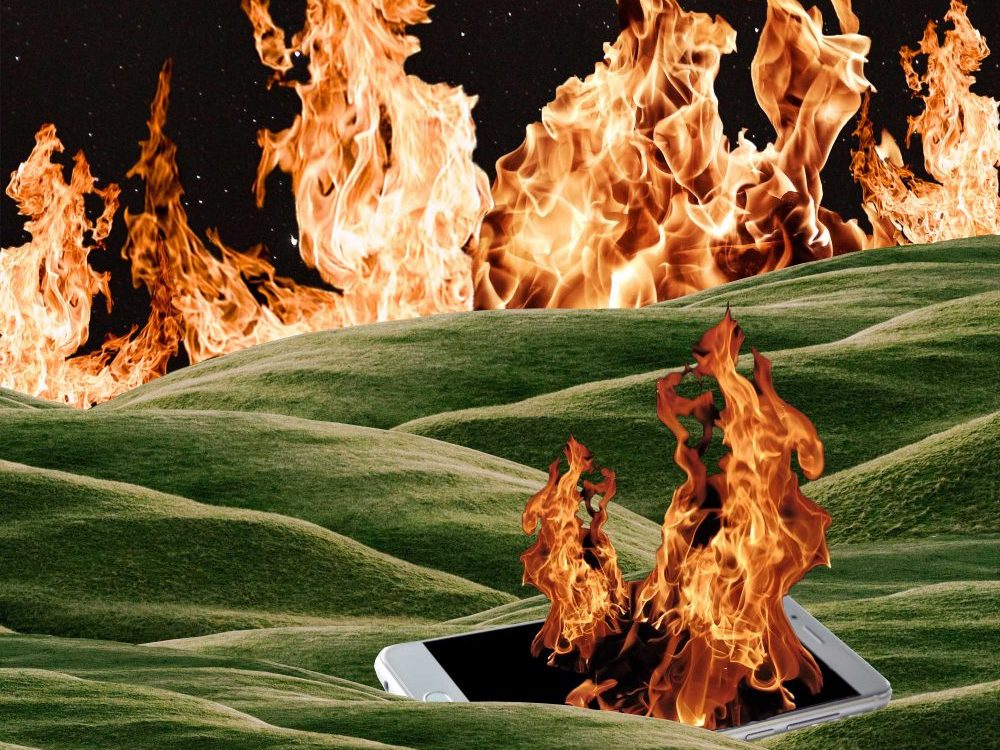I don’t recall where I was when I first saw the video of Eric Garner being choked to death by police in broad daylight, but I do remember immediately sharing it on Facebook. Racism is as old as the USA, but the advent of social media and smartphone cameras means incidents like Garner’s murder can be documented in real time. For a long time, I felt I owed it to my community to be aware of every injustice that came across my feed. I felt it was my duty to repost those videos for my white friends to see. I couldn’t go march in Ferguson, but that was my brand of activism, bringing uncomfortable truths to my digital world.
I attacked this new mission with gusto, sharing videos of the latest affront, being vocal about the ongoing injustice in our society in my posts, and engaging in debates in my comments. But it wasn’t long before that hyper-awareness took a toll on my mental and emotional health. At first, I dealt with it by trying to balance my exposure with mental palate cleansers like cat videos and make-up tutorials. Soon, even that wasn’t enough.
Poet Rudy Francisco rightfully compared being black to an extreme sport. I already faced microaggressions and bigotry in my daily life. That, coupled with what was going on in the broader culture, was exhausting and filled me with despair. Here we were, in the 21st century, still confronting the same evil my grandparents’ grandparents faced. Even worse, these events often went unacknowledged by those around me. Every black professional you know has been on an email chain or group chat at work discussing frivolous things while another black person had been humiliated, attacked, or killed somewhere else. I had to be present and engaged at work while my heart was hurting. I often felt lonely, isolated and defeated.
Eventually, I tapped out. Whenever I saw black people suffering racist violence (note: violence is not just physical) on my feeds, I started to scroll past to preserve my own sanity. I had to shut it out. For some people, self-care means face masks and yoga. For me, it meant protecting my mental space from visual evidence that black lives and bodies don’t matter. I stopped sharing those videos. Truthfully, a part of me felt fake and inauthentic for doing it while others engaged in “real” activism.
I lost my appetite for it at exactly the wrong time, when Trump’s ascendance emboldened white nationalists and brought an onslaught of policies that directly endangered marginalized groups. When my thumb swept past those videos, guilt nagged me. Turning my head felt selfish and insulting to my ancestors and elders. Where would my generation be if civil rights activists had ‘scrolled past’ in their day?
I found a way forward by talking with the other black women in my life. I wasn’t the only one feeling this way. A close friend, the mother of a black son, felt it even more keenly than I did. It was easy to feel overwhelmed by a problem as vast and intractable as racism, to shut down. We all agreed the best way to resist was to take actions within our power to drive change. We were all busy, professional women who couldn’t easily make it to street protests. But there were other ways we could resist that also preserved our mental health.
For myself, I put together a resource list for white friends who wanted to learn more about issues facing black Americans. This had the added benefit of helping me repel attempts to extract my emotional labor in talking about race (Reni Eddo-Lodge and Ijeoma Oluo have written great pieces on this). I donated to organizations challenging racism like the Equal Justice Initiative. I started a book club at work with reads offering diverse perspectives and experiences. I began journaling for the first time since my tween years – writing down how I felt about these incidents was cathartic and made it easier to keep things moving in my daily life.
These actions may seem small, but they helped me make an impact I could see. I could finally resist without going crazy.
Artwork by Esme Rose Marsh









